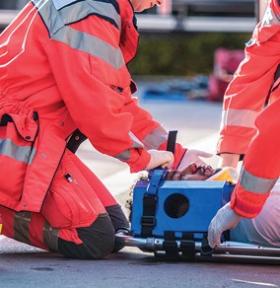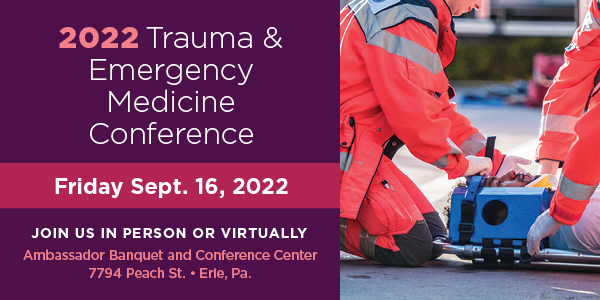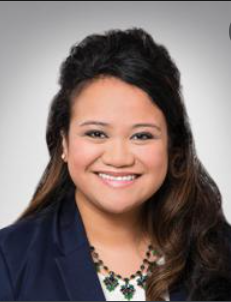
UPMC Hamot 2022 Trauma & Emergency Medicine Conference
Join your colleagues and gain the latest updates in trauma and emergency medicine!
Need
Research and evidence often surpass current practice standards; therefore, health care providers must be able to assess and implement improved patient care in advance of published standards. As new trends emerge, it is the responsibility of health care providers to facilitate implementation of practice change to incorporate emerging technologies and adapt to changing practice environments. Standardization of care in tertiary and regional emergency centers is a crucial factor in providing consistent, high-quality care to the regional community.
Goal
This activity has been designed to increase the participant’s critical thinking and knowledge of some common and not-so-common challenges in trauma and emergency medicine. Specific topics were selected based on challenges faced almost daily in trauma and emergency patient care, as well as ongoing and emerging health care concerns and trends. Ample time for questions and answers has been built in to each presentation. Audience members will also have the opportunity to speak one-on-one with presenters during refreshment breaks and lunch.
Help us help you!
Do you have a question that you would like to submit to the speakers in advance?
Send an email to [email protected] titled “Trauma Conference Question.”
These questions will be compiled and presented at the panel discussion sessions along
with questions from the audience.
Target Audience
Trauma and emergency medicine physicians, nurses, advanced practice providers, and pre-hospital personnel, as well as primary care practitioners with an interest in trauma and emergency medicine will benefit from attendance at this activity.
Learning Objectives
At the conclusion of this activity, the participants should be able to:
- Discuss indications for emergent surgical intervention
- Review indications for chest tube placement in the trauma patient
- Recognize common indicators of suicide risk
- Describe effective suicide intervention
- Utilize resources for suicide prevention and intervention
- Discuss different nursing roles, responsibilities, and management styles in the departments of emergency medicine, trauma, and the intensive care unit
- Identify screening techniques and patterns of injury in intimate partner violence
- Discuss options for referrals for community resources to aid patients experiencing intimate partner violence
- Discuss expectations for patient stabilization in a rural setting prior to transfer to a trauma center
- Develop an understanding of the concept of Damage Control Orthopaedics
- Describe basic methods involved in Damage Control Orthopaedics
- Discuss how Damage Control Orthopaedics affects the overall care of the trauma patient
- Discuss the impact COVID-19 has had in trauma and emergency medicine
- Discuss how to initiate a difficult conversation with family
- Describe how stages of grief impact family understanding of critical illness
- Recognize how to effectively convey the most important details to a family at a given time
- Review approach to pediatric trauma
- Discuss injury management in pediatric trauma
- Describe the benefits of Critical Care Transport in terms of scope of care and speed of transport
- Recognize the capabilities and composition of a critical care transport team
- Define the opportunities to improve patient hand offs when accepting or transferring patients to Critical Care Transport
- Assess various approaches to unique medical diagnoses in trauma and emergency medicine
- Discuss morbidity and mortality associated with rib fractures in the elderly
7:30 – 8 | Registration/Continental Breakfast | |
8 – 8:05 | Introduction | Kristin Juhasz, DO, Melissa Loveranes, DO |
8:05 – 8:30 | Surgical Treatments in Trauma* | Lindsey Roach, DO |
8:30 – 8:55 | Asking for a Friend…Everyday Suicide Prevention* | Mandy Fauble, PhD, LCSW |
8:55 – 9:40 | Continuity of Care - Nursing Panel* | Erin Kaschalk, BSN, RN, CCRN; Donny McDowell, RN, CEN, PHRN; Sarah Pollick, RN, CNOR, Eva Williams, RN, BSN-CMSRN; Isabelle Wingerd, RN-BSN, CEN, TCRN, CPEN |
9:40 – 9:55 | Refreshment Break | |
9:55 – 10:20 | Caring for Patients Impacted by Intimate Partner Violence* | Karin Wickwire, DNP |
10:20 – 10:45 | Make the Move: Effectively Stabilizing and Transferring Trauma Patients | Christopher Cammarata, DO |
10:45 – 11:10 | Damage Control Orthopaedics* | James Delullo, MD |
11:10 – 11:35 | COVID-19 Updates | Gregory Beard, DO |
11:35 – 12:20 | Lunch and Networking | |
12:20 – 1:15 | Family Dynamics Panel* | Kristin Juhasz, DO, Melissa Loveranes, DO, Timothy Baptist, MD, Ferdinando Mirarchi, DO, John Barnett, CRNP |
1:15 - 2 | Pediatric Trauma* | Ward Richardson, MD |
2 – 2:15 | Refreshment Break | |
2:15 – 2:45 | What to Expect When You are Expecting: Critical Care Transport | Francis Guyette, MD |
2:45 – 3:25 | Case Presentations | Michael Knoll, DO, Matthew Sturdivant, DO |
3:25 – 3:50 | Trauma in the Elderly* | Melissa Loveranes, DO |
3:50 | Closing Remarks, Adjournment | |
TWO WAYS TO ATTEND THIS HYBRID CONFERENCE:
OPTION 1:
In Person at the Crystal Ballroom at the Ambassador Banquet and Conference Center, behind the Courtyard by Marriott at 7794 Peach St., Erie, Pa.
Registration fees includes the seminar, continental breakfast, refreshment breaks and lunch.
OPTION 2:
Virtually via Zoom
Pre-registrants will be sent links prior to the conference, and all links will be available on the conference website for those who have registered.
Travel
Click here for directions
If you are interested in staying at a hotel, please reach out to the CME Department for discounted rates:
[email protected] or 814-877-5691
COURSE DIRECTORS:
Kristin Juhasz, DO
Core Faculty
Emergency Medicine Residency Program
Department of Emergency Medicine
UPMC Hamot
Melissa Ann H. Loveranes, DO, FACOS, FACS
Trauma, Acute Care Surgery, Surgical Critical Care
Great Lakes Surgical Specialists
UPMC Hamot
FACULTY:
John Barnett, CRNP
Palliative Care
UPMC Hamot
Timothy Baptist, MD
Intensivist
Department of Critical Care
UPMC Hamot
Gregory Beard, DO
Vice President of Medical Affairs and Chief Medical Officer
Great Lakes Surgical Specialists
UPMC Hamot
Christopher Cammarata, DO
Medical Director, EmergyCare
Department of Emergency Medicine
UPMC Hamot
James DeLullo, MD, MBA, FAOA, FAAOS, FACS
Program Director
UPMC Hamot Orthopaedic Surgery Residency
Medical Director of Orthopaedic Trauma
UPMC Hamot
Clinical Assistant Professor
University of Pittsburgh School of Medicine
Mandy Fauble, PhD, LCSW
Director of Clinical Care Services
UPMC Western Behavioral Health at Safe Harbor
Francis X. Guyette MD, MPH
Medical Director, STAT MedEvac
Professor of Emergency Medicine
University of Pittsburgh
Kristin A. Juhasz, DO
Emergency Medicine Core Faculty
UPMC Hamot
Erin Kaschalk, BSN, RN, CCRN
UPMC Hamot
Michael Knoll, DO
Emergency Medicine Resident
UPMC Hamot
Melissa Ann H. Loveranes, DO, FACOS, FACS
Trauma, Acute Care Surgery, Surgical Critical Care
Great Lakes Surgical Specialists
UPMC Hamot
Donny McDowell, RN, CEN, PHRN
UPMC Hamot
Ferdinando L. Mirarchi, D.O., FAAEM, FACEP
Medical Director
Department of Emergency Medicine
UPMC Hamot
Chairman, UPMC Physician Network
Governance Council
Sarah Pollick, RN, CNOR
UPMC Hamot
Ward Richardson, MD
Director, Trauma and Injury Prevention
UPMC Children's Hospital
Assistant Professor of Surgery
University of Pittsburgh School of Medicine
Lindsey Roach, DO
Great Lakes Surgical Specialists
UPMC Hamot
Matthew Sturdivant, DO
General Surgery Resident
UPMC Horizon
Karin Wickwire, DNP, CRNP, SANE-A, SANE-P
CRNP/Forensic Coordinator, Departments of Emergency & Critical Care Medicine--UPMC Hamot
CRNP, Division of Child Advocacy, Erie CARE Clinic--UPMC Children’s Hospital
President, Pennsylvania Chapter of the IAFN
IAFN Board of Directors, Director at Large
Eva Williams, RN, BSN-CMSRN
UPMC Hamot
Isabelle Wingerd, RN-BSN, CEN, TCRN, CPEN
UPMC Hamot
No members of the planning committee, speakers, presenters, authors, content reviewers and/or anyone else in a position to control the content of this education activity have relevant financial relationships with any companies whose primary business is producing, marketing, selling, re-selling, or distributing healthcare products used by or on patients.
ACCREDITATION
In support of improving patient care, the University of Pittsburgh is jointly accredited by the Accreditation Council for Continuing Medical Education (ACCME), the Accreditation Council for Pharmacy Education (ACPE), and the American Nurses Credentialing Center (ANCC), to provide continuing education for the healthcare team.
Physician (CME)
The University of Pittsburgh designates this live activity for a maximum of 6.5 AMA PRA Category 1 Credits™. Physicians should claim only the credit commensurate with the extent of their participation in the activity.
AOA Category 1-A Credit
The Philadelphia College of Osteopathic Medicine is accredited by the American Osteopathic Association to provide osteopathic continuing medical education for physicians. The Philadelphia College of Osteopathic Medicine designates this program for a maximum of six and one half hours of AOA Category 1-A credits and will report CME and specialty credits commensurate with the extent of the physician's participation in this activity
Nursing (CNE)
A maximum of 6.5 nursing contact hours will be awarded. Participants will be able to claim credit commensurate with the extent of their participation in the program.
PHYSICIAN ASSISTANT (AAPA)
The University of Pittsburgh has been authorized by the American Academy of PAs (AAPA) to award AAPA Category 1 CME credit for activities planned in accordance with AAPA CME Criteria. This activity is designated for 6.5 AAPA Category 1 CME credits. PAs should only claim credit commensurate with the extent of their participation.
Trauma Credit Hours
Select sessions meet the requirements for trauma education hours. The maximum trauma education credit available for this conference is 4.50 hour.
Prehospital Continuing Education Credits
Continuing education credits for prehospital emergency medicine services personnel has been approved for 7.50 credit hours.
Other Healthcare Professionals
Other health care professionals will receive a certificate of attendance confirming the number of contact hours commensurate with the extent of participation in this activity.
Available Credit
- 6.50 AAPA Category I CME
- 6.50 AMA PRA Category 1 Credit™The University of Pittsburgh School of Medicine is accredited by the Accreditation Council for Continuing Medical Education to provide continuing medical education for physicians.
- 6.50 ANCCUPMC Provider Unit is accredited as a provider of continuing nursing education by the American Nurses Credentialing Center’s Commission on Accreditation
- 6.50 Attendance
If you are interested in exhibiting, please contact the Hamot CME Department at 814-877-5691, or send an e-mail to [email protected]
Price
UPMC EMPLOYEE PAYMENT VIA JOURNAL ENTRY TRANSFER OR MEB SCHOLARSHIP FUNDS
If you are a UPMC employee and your department will be responsible for payment, we can charge your department directly.
DO NOT SUBMIT a disbursement to UPMC Accounts Payable.
For journal transfer and MEB funds, please fill out the appropriate form below:
![]() MEB Tracking Form reviewed 7-6-2020.pdf
MEB Tracking Form reviewed 7-6-2020.pdf
Cancellation policy
Please notify UPMC Hamot’s CME Department of substitutions and cancellations, via email to [email protected] or by telephone at 814-877-5691.
IF YOU ARE REQUIRED TO PAY BY CHECK
Please contact the UPMC Hamot CME Department at: 814-877-5691 or e-mail: [email protected].

 Facebook
Facebook X
X LinkedIn
LinkedIn Forward
Forward


